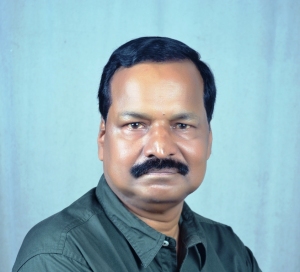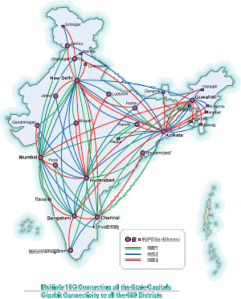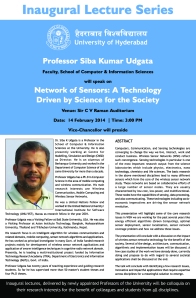 The results from the NAAC reaccreditation are now out, and our University has been awarded the overall score of 3.72 out of 4. This is lower than what we had in the first round of reaccreditation when we were given 3.89 out of 4. It is disappointing that we have slipped by 0.17, a percentage drop in quality of about 5%, however that may be estimated… From the documents that can be seen on their website, it is clear that with the passage of time the NAAC has gotten somewhat stricter, but that in of itself is little solace, given the effort that went into the preparation for the visit of the peer review team in January.
The results from the NAAC reaccreditation are now out, and our University has been awarded the overall score of 3.72 out of 4. This is lower than what we had in the first round of reaccreditation when we were given 3.89 out of 4. It is disappointing that we have slipped by 0.17, a percentage drop in quality of about 5%, however that may be estimated… From the documents that can be seen on their website, it is clear that with the passage of time the NAAC has gotten somewhat stricter, but that in of itself is little solace, given the effort that went into the preparation for the visit of the peer review team in January.
 Be that as it may, all of us owe a word of appreciation to the Coordinator of the effort, Professor Sachi Mohanty of the Department of English. He was a veritable one-man army, mobilizing the efforts of so many staff in preparing reports, collecting information, supervising cleaning, painting, and doing the million things that we all saw him do.
Be that as it may, all of us owe a word of appreciation to the Coordinator of the effort, Professor Sachi Mohanty of the Department of English. He was a veritable one-man army, mobilizing the efforts of so many staff in preparing reports, collecting information, supervising cleaning, painting, and doing the million things that we all saw him do.
As a colleague wrote to him after the NAAC peer team visit, “I want to take the opportunity to congratulate you and your team for an excellent academic presentation and for the efficient coordination and organization of the NAAC visit. We may know the grade/marks later, but whatever these may be, you and your team made the UoH community proud of its achievements.
I would also like to acknowledge and salute your personal commitment, dedication and devotion to the University; it is rare to find this today. You not only put together and presented an academic assessment through the voluminous report documenting the achievements of the various Departments and Centres and Schools but also highlighted the small and big endeavors made by the teaching, non teaching and student community. As a member of the campus residential community I want to particularly thank you for efforts you made to improve our environment and ambience and make the campus a clean and aesthetic place to live in. In ensuring this, you went beyond the call of duty.“
 There are some advantages to not being No. 1 – one tries harder to achieve excellence… There will be time enough to discuss what all needs improving at the University- starting with the infrastructure, both physical and academic. But we should find both the time and the will to bring about some real changes, to earn the higher grades that we all know that we are capable of. Till then, we should keep trying.
There are some advantages to not being No. 1 – one tries harder to achieve excellence… There will be time enough to discuss what all needs improving at the University- starting with the infrastructure, both physical and academic. But we should find both the time and the will to bring about some real changes, to earn the higher grades that we all know that we are capable of. Till then, we should keep trying.
See an interview on the local tv station: http://www.youtube.com/watch?v=57gT5J8wrxE#aid=P-sgiBrV7IE


